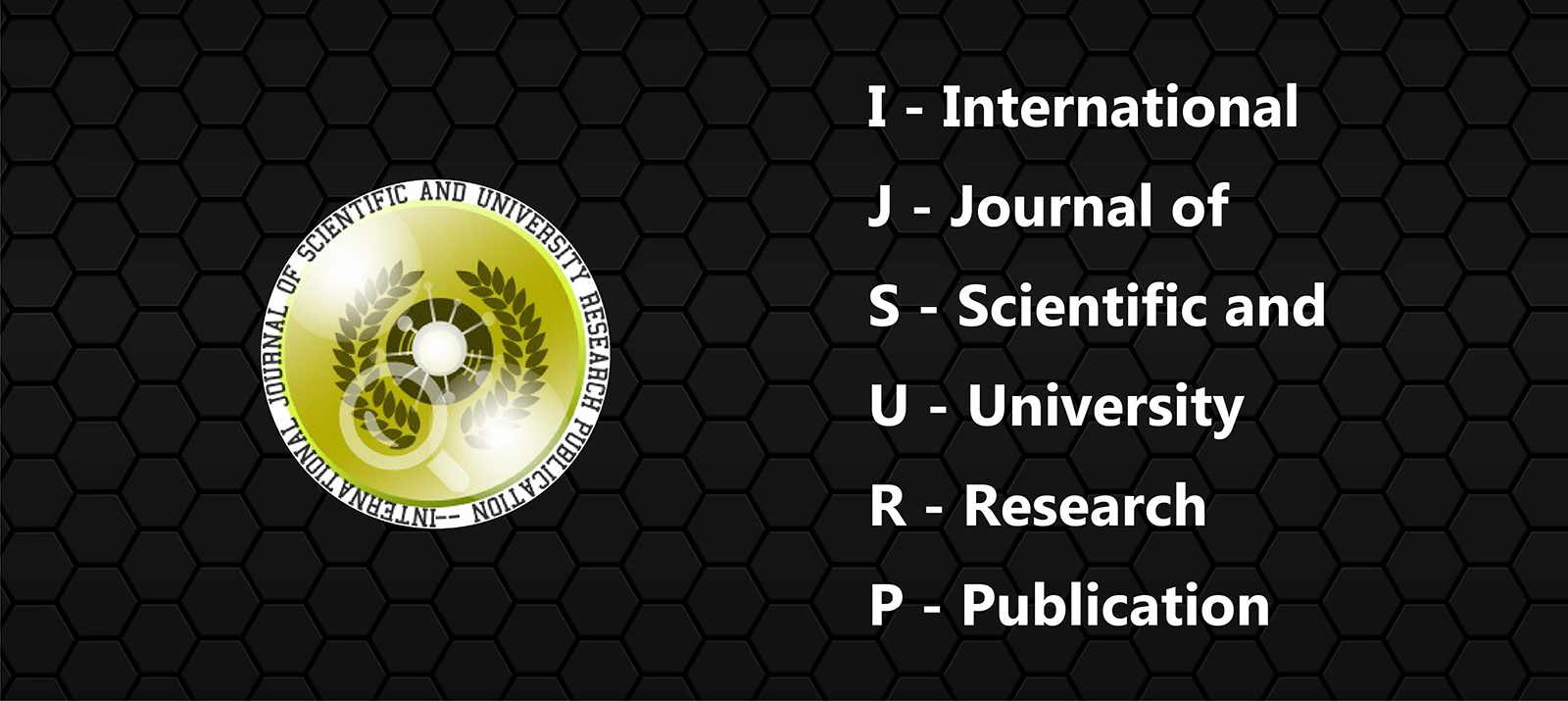
Innovative Methods in English Language Teaching
Authore(s) : Alia Abd el Jawad el CHEIKH IBRAHIM || Phd. International Politics & English Business
Volume : (3), Issue : 211, January - 2019
Abstract : In this Article we will go through The purpose of this paper is to evaluate the innovative methods of teaching and to suggest other useful teaching methods that can be attempted in imparting knowledge to the students. Basically teaching must include two major components sending and receiving information. Ultimately, a teacher tries his best to impart knowledge as the way he understood it. So, any communication methods that serve this purpose without destroying the objective could be considered as innovative methods of teaching. The use of innovative methods in educational institutions has the potential not only to improve education, but also to empower people, strengthen governance and stimulate the effort to attain the human development goal for the country.
Keywords :Innovative Methods, English Language, Teaching, Importance of Education.
Article: Download PDF Journal DOI : 2018/2364
Cite This Article:
Methods in English Language
Vol.I (3), Issue.I 211
Article No : 10025
Number of Downloads : 105
References :
Crookall, D., & Oxford, R. L. (1990b). The island game. In D. Crookall & R. L. Oxford (Eds.), Simulation, gaming, and language learning (pp. 251-259). New York: Newbury House.
Cummings, M.G., & Genzel, R. B. (1990). Simulation/game design and adaptation. In D. Crookall & R. L. Oxford (Eds.), Simulation, gaming, and language learning (pp. 67-72). New York: Newbury House
Ladousse, G. P. (1987). Role play. Oxford: Oxford... More
- Crookall, D., & Oxford, R. L. (1990b). The island game. In D. Crookall & R. L. Oxford (Eds.), Simulation, gaming, and language learning (pp. 251-259). New York: Newbury House.
- Cummings, M.G., & Genzel, R. B. (1990). Simulation/game design and adaptation. In D. Crookall & R. L. Oxford (Eds.), Simulation, gaming, and language learning (pp. 67-72). New York: Newbury House
- Ladousse, G. P. (1987). Role play. Oxford: Oxford University Press.
- Role Play - Gillian Porte Ladousse (Oxford 1987)
- Richards, J. C. & Rodgers, T. S. (1986). Approaches and methods in language teaching. Cambridge: Cambridge University Press.
- Stoklosa, Bożenna. “Trickster – Mythical Deity, Archetype and Figure of a Creator.” Trickster Strategies in the Artists’ and Curatorial Practice. Torún: Tako Publishing House,2012.print
- The Game. Dir. David Fincher. PolyGram Filmed Entertainment, 1997. Film.
- Torre, Miguel A. De La, and Albert Hernández. The Quest for the Historical Satan.Minneapolis: Fortress Press, 2011. Print.
... Less
- Crookall, D., & Oxford, R. L. (1990b). The island game. In D. Crookall & R. L. Oxford (Eds.), Simulation, gaming, and language learning (pp. 251-259). New York: Newbury House.
- Cummings, M.G., & Genzel, R. B. (1990). Simulation/game design and adaptation. In D. Crookall & R. L. Oxford (Eds.), Simulation, gaming, and language learning (pp. 67-72). New York: Newbury House
- Ladousse, G. P. (1987). Role play. Oxford: Oxford University Press.
- Role Play - Gillian Porte Ladousse (Oxford 1987)
- Richards, J. C. & Rodgers, T. S. (1986). Approaches and methods in language teaching. Cambridge: Cambridge University Press.
- Stoklosa, Bożenna. “Trickster – Mythical Deity, Archetype and Figure of a Creator.” Trickster Strategies in the Artists’ and Curatorial Practice. Torún: Tako Publishing House,2012.print
- The Game. Dir. David Fincher. PolyGram Filmed Entertainment, 1997. Film.
- Torre, Miguel A. De La, and Albert Hernández. The Quest for the Historical Satan.Minneapolis: Fortress Press, 2011. Print.






